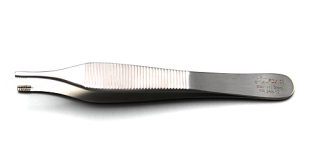Buccal Bifurcation Cyst is most common in children. The lesions of the cyst are associated with molars in children. It is a rare form of a cyst. The identification of the cyst is before it has erupted. The clinical features of the Buccal Bifurcation cyst were explained by Stoneman. It was labeled by the name of the mandibular infected cyst.
These cysts are confused with some other lesions which have similar radiological features. The cyst is specific to the site and location. The age groups between 6 and 13 years old are mostly affected. The mandibular molar is tilted in the patients suffering from Buccal Bifurcation Cyst.
Buccal Bifurcation Cyst is categorized under the category of inflammatory paradental cysts. The histological features of Buccal Bifurcation Cyst are non-specific. There is no clear classification or categorization of the cyst according to the latest studies.
Buccal Bifurcation Cyst Symptoms
If there is a suspected problem observed in the jaw and mouth of children, They should be properly examined and referred to a maxillofacial surgeon. The diagnosis and proper treatment are necessary so the cyst does not develop into a malignancy.
Moreover, cysts like Buccal Bifurcation are ignored and not treated in a timely manner, they grow in size and affect tooth development causing pain in the surrounding areas. Here are some of the common symptoms mostly experienced when a patient has Buccal Bifurcation Cyst.
- Facial Pain
- Facial swelling
- Swelling will spread to the surrounding areas of the mouth
- Inflammation
- Bleeding in the gums
- Infection can occur if the treatment is delayed
- Reduced enamel
- Tenderness
- Slightly erythematous
- Expansion of bone
- Cysts can grow and lead to discomfort in the surrounding teeth
- It might affect the normal development of teeth in children
Buccal Bifurcation Cyst Diagnosis
The diagnosis of cyst is majorly dependent on the clinical symptoms. But sometimes, it’s difficult to only rely on the symptoms, as it might indicate the opposite direction. If there’s a history of cysts or genetic mutation, there are high chances that you might develop Buccal Bifurcation Cyst.
In some cases, for a positive diagnosis doctors recommend a biopsy to their patients. It is a procedure, in which the affected tissue is tested. The results will show the location of the cyst and the extent of damage caused by it.
A biopsy is always recommended if the doctors couldn’t find something from the radiological and clinical examination. The recurrence of Buccal Bifurcation Cyst is normal. The differential diagnosis of Buccal Bifurcation Cyst involves the following:
- Eosinophilic Granuloma
- Lateral periodontal cyst
- Traumatic bone cyst
- Periostitis ossificans
Buccal Bifurcation Cyst Causes
Buccal cysts can be painful and unbearable. The improper growth of the teeth can result in a cyst. The abnormalities in the normal teeth development can also cause Buccal Bifurcation Cyst. A root canal that was not successful can also result in a cyst.
Moreover, genetic syndromes can also cause Buccal Bifurcation Cyst. The symptoms can be different from the ones normally experienced. The embedded wisdom tooth can also lead to infection. Cysts can be seen around the buried roots of teeth. The roots of the affected teeth should be treated with a proper plan.
Some people experience one cyst while few develop clusters of cysts. Buccal Bifurcation Cyst will cause weakening of the jaw, which leads to complications. It is vital that if your dentist or doctor finds any sign or symptom suspicious, you should seek proper medical advice and a treatment plan from a specialist.
Buccal Bifurcation Cyst Treatment
The treatment options for Buccal Bifurcation cysts have changed with time. The randomized controlled trials don’t make much sense due to the low ratio of the cyst. Tooth extraction is one of the effective treatments for this cyst. Curettage of the lesion is another proven treatment for the Bifurcation cyst.
Dental X-rays can help to determine and diagnose a cyst at the early stages. A 3D CBCT scan is recommended in case there is a hint of a cyst. The removal of the cyst is done by the oral surgeon. You are under general anesthesia. If the cyst is attached to the tooth, the surgeon will have to remove your tooth as well.
Painkillers like NSAIDs are given to relieve the excess pain. In case of any infection, antibiotics are prescribed to treat it. In a nutshell, surgical removal is the best option to consider when the patient has Buccal Bifurcation Cyst.
 Health & Care Information
Health & Care Information 


